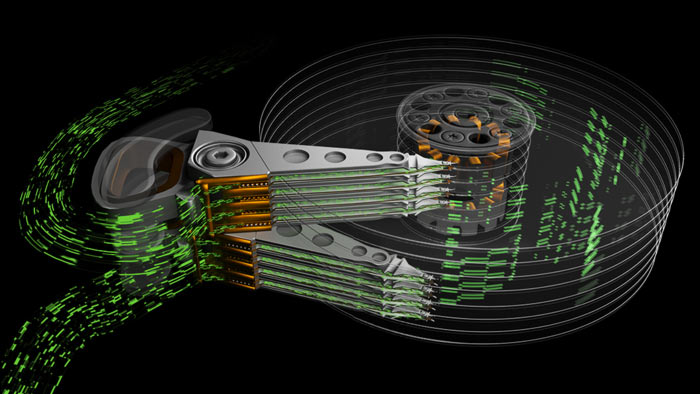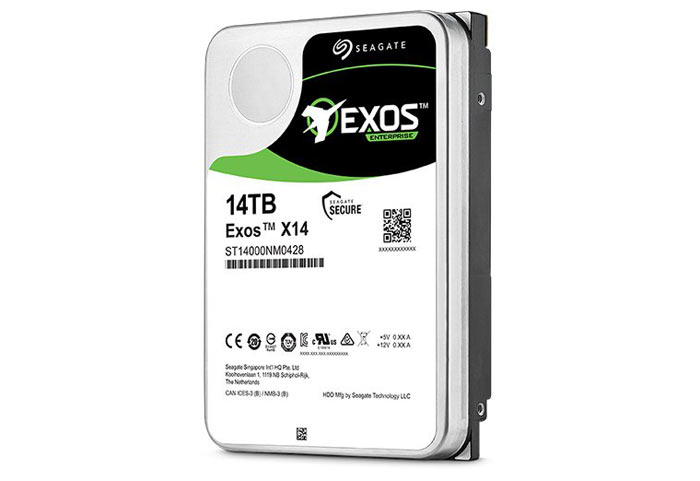A couple of days ago Seagate announced that it would be showcasing its latest HDD technology at the Open Compute Project Summit in San Jose California. In a press release it focused on a new product - the 3.5-inch 14TB capacity helium-based Exos X14 HDD. Attractions of the new enterprise storage drive would include "the industry’s lowest power consumption, smallest footprint, and best performance in its class," said Seagate. Tom's Hardware covered Seagate's news at the OCP U.S. Summit 2018 a few hours ago, with further interesting details about the upcoming Exos series of drives.

At the show Seagate claimed its Exos drives can achieve 480 MB/s of sequential throughput thanks to the use of its latest actuator technology dubbed 'Mach.2'. HEXUS first reported upon Seagate's multi actuator performance breakthrough back in December. The quoted performance figure, I'm not sure if there was an actual demonstration, "is more than twice the standard 235 MB/s of the speediest 7,200-RPM enterprise HDDs," notes Tom's Hardware. Compared to industry leading 15K HDDs, Exos drives are still 60 per cent faster.

Another important aspect of the Exos drives touched upon at the show concerned reliability. HAMR (Heat Assisted Magnetic Recording) is a relatively new technology where tiny lasers heat the recording surface to over 400°C for a split second. The attraction is that this technique offers expanded recording capacity (up to 2TB per square inch) but there were, understandably, concerns about the heat-based tech being used in terms of endurance and reliability.
Seagate says that it has surpassed industry standards in reliability with its HAMR implementation. "HAMR-infused recording heads are capable of transferring data for 6,000 hours, or more than 3.2 petabytes of data," reports Tom's Hardware - said to be 20x more reliable than industry standard recording heads.

Seagate Exos series drives leveraging Mach.2 and HAMR are in the hands of leading customers already but we don't have any info regarding wider availability and pricing.













